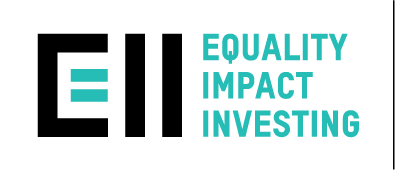Advancing Equality and Human Rights through Investment and Procurement
At the Equally Ours' April Policy Forum Meeting, we focused on the pivotal role of investment and procurement in promoting equality and human rights, writes Tanishtha SenGupta, Head of Programme, Enterprise Development Programme, Equally Ours.
Our 10-year strategy includes investment as one of our key areas of focus. Every year, governments and the philanthropic sector make choices about where and how they invest billions of pounds in the UK - and too often, when it comes to investing in people’s equality and human rights, they prioritise the symptoms rather than the causes. Equally Ours is making sure we address the root causes of inequality and rights abuse through strategic allocation of resources.
We looked at two broad ways in which equality and human rights can be embedded into procurement and investment:
1. Building resilience for civil society through social enterprise
As needs rise in the wake of the pandemic, Brexit uncertainties, and the cost-of-living crisis, grant funding has become increasingly scarce. To navigate these challenges, exploring trading and social enterprise is crucial. Charities are increasingly embracing trading and social enterprise as a solution to diversify their income streams, and build financial resilience. Charities having self-generated revenue streams means that as trends in investment come and go, they are able to continue their work on vital issues. The Enterprise Development Programme (EDP), funded by Access – The Foundation for Social Investment, recognises this need and thus supports organisations in learning how to establish and operate businesses while offering grants to foster sustainability.
ICENA Ltd is a successful example from the EDP which showcases how equality and human rights can be advanced through financial resilience and enterprise growth. ICENA specialises in training and consultancy to create safe, equitable spaces and workplaces, free of sexual discrimination and violence. Profits from these services fund vital support systems for UK’s survivors of sexual violence (i.e. they go to charities like Rape Crisis).
As a result, through the services they offer and the income they generate, ICENA is able to:
• change attitudes, beliefs and practices;
• promote equal access and opportunities;
• help end sexual discrimination and violence;
• empower communities to overcome the causes and effects of sexual violence and abuse.
Their clients not only meet their own needs but also become powerful contributors to the advancement of a more equal and just society.
Read more about embedding equality into your investment and procurement by working with a social enterprise in this blog by ICENA.
2. Ensuring equality and human rights in investment and procurement decisions
The Public Sector Equality Duty places a legal obligation on public authorities to have ‘due regard’ to the need to eliminate discrimination, advance equality of opportunity, and foster good community relations. Scotland and Wales go a step further with the socioeconomic duty, aiming to address the inequalities stemming from socioeconomic disadvantage.
The good news is that a number of combined authorities in England, have voluntarily adopted this additional duty to varying degrees. Other positive developments in this area are the introduction of the Social Partnership and Public Procurement (Wales) Bill and the Community Wealth Building Bill in Scotland. There are also currently large amounts of funding which are available from the UK government, especially the Levelling Up and Shared Prosperity funds, and City Region Deals.
While these positive developments have paved the way, significant challenges remain. Public investments, aimed at stimulating growth and development, often fail to address significant employment gaps in participation, progression and pay. In the wind power industry, for example – which is receiving huge amounts of investment– only 16% of the workforce are women, 5% are ethnic minority people, and data on disabled people’s participation in the workforce has not yet been gathered.
It is crucial to embed specific equality conditions into contracts and enforce their implementation if we are going to advance equality and human rights. Tangible actions include setting participation targets; using positive action through outreach, training and support (particularly in sectors that we know to be highly segregated) to meet the targets; and ensuring all transport and housing is accessible. Additionally, stakeholder engagement, monitoring, reporting, and evaluation throughout project lifecycles are essential to ensure benefits reach marginalised communities.
Another challenge with regional and local investment decisions, is the need to involve local organisations with specialist insights, and to go beyond geographical inequalities by addressing inequalities faced by people based on their protected characteristics.
Conclusion: Persisting towards transformative change
While many opportunities exist to leverage investment and procurement for equality and human rights, we must address the gaps to create real change. As our Co-CEO Clare likes to say, eventually, “persistence beats resistance.”
In the short term, Equally Ours will continue to advocate for government investment to tackle structural inequalities, and to build on our initiatives on enterprise development and funding for racial justice. In the long term, we want to develop a programme that maximises our focus on this agenda. We will generate a rigorous evidence base with policy and practice recommendations that support funders to understand the root causes of inequality and rights abuse, to invest in structural solutions.
